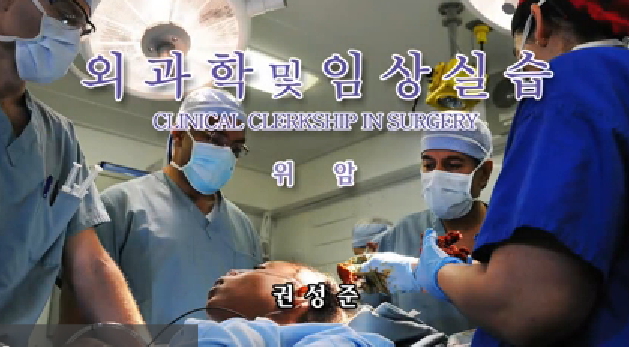Background: Basaloid squamous cell carcinoma of the esophagus (BSCCE) is a rare and distinctive tumor with no standard treatment. This study aimed to explore treatment in relation to prognosis of the disease. Methods: A total of 142 patients with BSCC...
http://chineseinput.net/에서 pinyin(병음)방식으로 중국어를 변환할 수 있습니다.
변환된 중국어를 복사하여 사용하시면 됩니다.
- 中文 을 입력하시려면 zhongwen을 입력하시고 space를누르시면됩니다.
- 北京 을 입력하시려면 beijing을 입력하시고 space를 누르시면 됩니다.

Clinical Outcomes of Basaloid Squamous Cell Carcinoma of the Esophagus: A Retrospective Analysis of 142 Cases
한글로보기https://www.riss.kr/link?id=A101653662
- 저자
- 발행기관
- 학술지명
- 권호사항
-
발행연도
2013
-
작성언어
English
- 주제어
-
등재정보
SCOPUS
-
자료형태
학술저널
-
수록면
1889-1894(6쪽)
- DOI식별코드
- 제공처
-
0
상세조회 -
0
다운로드
부가정보
다국어 초록 (Multilingual Abstract)
Background: Basaloid squamous cell carcinoma of the esophagus (BSCCE) is a rare and distinctive tumor with no standard treatment. This study aimed to explore treatment in relation to prognosis of the disease. Methods: A total of 142 patients with BSCCE that underwent treatment in our hospital from March 1999 to July 2010 were retrospectively analyzed. All patients received surgery, 42 postoperative radiotherapy and 28 patients chemotherapy. Results: There were 26 patients included in stage I, 60 in stage II, 53 in stage III and 3 in stage IV. The clinical symptoms and macroscopic performances of BSCCE did not differ from those of typical esophageal squamous cell carcinoma. Among 118 patients receiving endoscopic biopsy, only 12 were diagnosed with BSCCE. The median survival time (MST) of the entire group was 32 months, with 1-, 3- and 5-year overall survival (OS) of 81.4%, 46.8% and 31.0%, respectively. The 5-year OS of stage I and II patients was significantly longer than that of stages III/IV, at 60.3%, 36.1% and 10.9%, respectively (p<0.001, p=0.001). The MST and 5-year OS were 59.0 months and 47.4% in patients with tumors located in the lower thoracic esophagus, and 27.0 months and 18.1% in those with lesions in the upper/middle esophagus (p=0.002). However, the survival was not significantly improved in patients undegoing adjunctive therapy. Multivariate analysis showed TNM stage and tumor location to be independent prognostic factors. Furthermore, distant metastasis was the most frequent failure pattern, with a median recurrence time of 10 months. Conclusion: BSCCE is an aggressive disease with rapid progression and a propensity for distant metastasis. It is difficult to make a definitive diagnosis via preoperative biopsy. Multidisciplinary therapy including radical esophagectomy with extended lymphadenectomy should be recommended, while the effectiveness of radiochemotherapy requires further validation for BSCCE.
동일학술지(권/호) 다른 논문
-
- Asian Pacific Journal of Cancer Prevention
- Pongpiachan, Siwatt
- 2013
- SCOPUS
-
- Asian Pacific Journal of Cancer Prevention
- Pongpiachan, Siwatt
- 2013
- SCOPUS
-
Temporal and Spatial Distribution of Particulate Carcinogens and Mutagens in Bangkok, Thailand
- Asian Pacific Journal of Cancer Prevention
- Pongpiachan, Siwatt
- 2013
- SCOPUS
-
Lifestyle Practice among Malaysian University Students
- Asian Pacific Journal of Cancer Prevention
- Al-Naggar, Redhwan Ahmed
- 2013
- SCOPUS




 ScienceON
ScienceON





